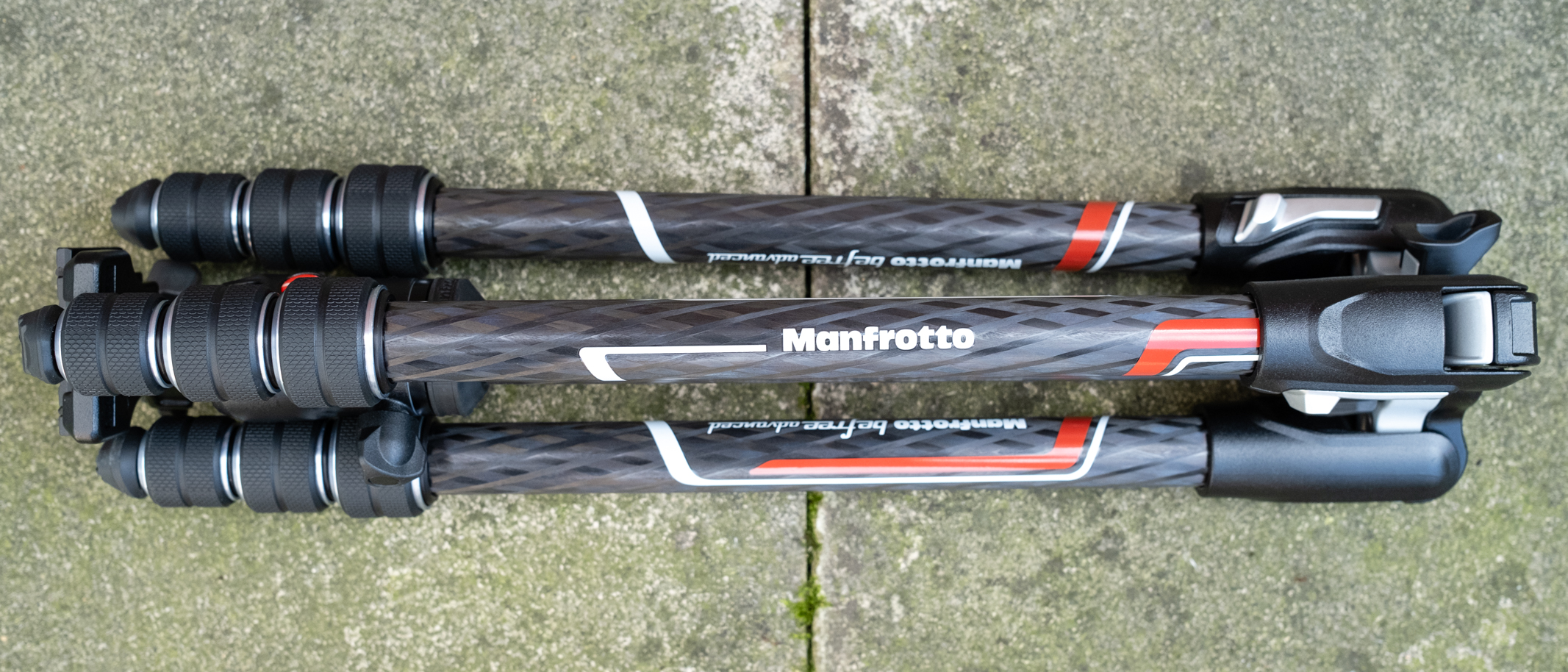TechRadar Verdict
The Manfrotto Befree Advanced Carbon Fiber Travel Tripod is incredibly compact and lightweight, but it only offers basic features. If those features suffice for you, then you'll struggle to find a better support for the weight. However, you can buy more impressive travel tripods for a similar price or in some cases slightly less. Overall performance is excellent despite the basic features and the effectiveness of support can’t be faulted.
Pros
- +
Lightweight and compact
- +
Well-made
- +
Rigid carbon fiber legs
Cons
- -
Expensive for the features on offer
- -
Head doesn’t use an Arca Swiss style plate
- -
Shorter than the Manfrotto M11
Why you can trust TechRadar
Two-minute review
For some photographers, the most lightweight travel tripods are the only option when it comes to traveling, and the Manfrotto Befree Advanced Carbon Fiber Travel Tripod is one of the lighter and more compact options available. At just 2.75lbs / 1.25kg and with a folded length of 16.1in / 41cm, it’s an extremely portable travel tripod that you can comfortably carry over long periods, barely noticing it's there.
The Befree Advanced costs $319 / £279 / AU$555 which is an attractive price for such a compact and lightweight tripod when compared to some alternatives, but you can get a much more fully featured tripod, if slightly heavier, for a similar price or less, such as the 3LT Brian 2.0 Travel Tripod.
Going heavier is arguably worthwhile for the additional functionality. For example, the 3LT offering has a built-in monopod and a taller maximum height. However, if weight is your main concern, you’ll struggle to find a better Befree Advanced alternative at this price, and you can find deals on it for less than the list price mentioned above (see below).
Weight versus features is a typical quandary when buying a travel tripod; you often have to make concessions in one area to be able to take advantage of the benefits in another. In this case, I can’t get away from the cost versus features aspect of the tripod – you can get so much more for your money with competitor models.
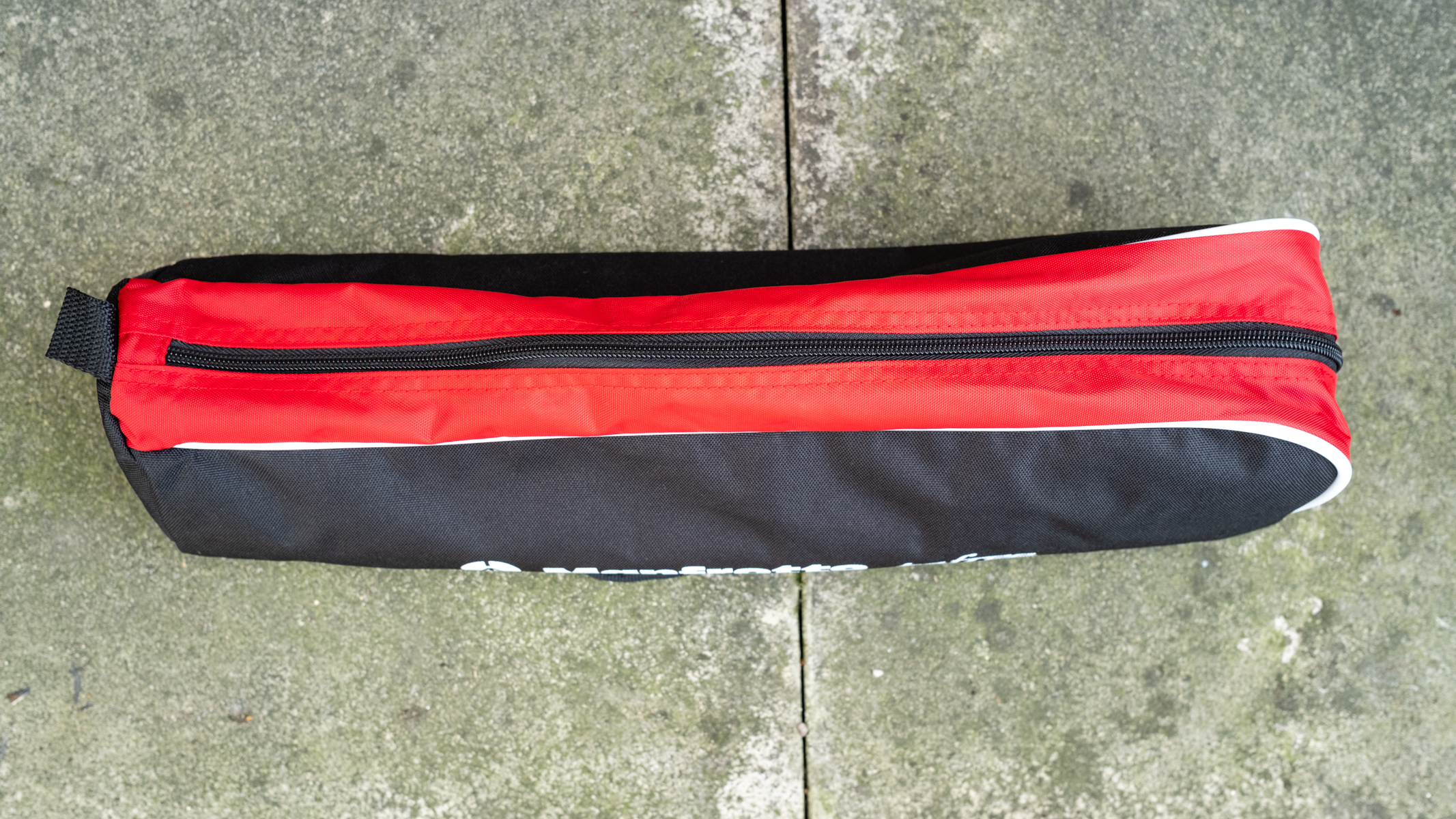
The Befree Advanced is advertised as a tripod for advanced hobbyists and has a maximum height of 59in / 150cm alongside a maximum payload of 19.8lbs / 9kg, and packs down to 16.1in / 41cm. However, the Befree Advanced provides adequate support for professionals because the fairly narrow four section legs are surprisingly rigid.
In terms of design and build quality, you can’t fault the Befree Advanced because it looks, feels and performs much more smoothly than Manfrotto’s budget travel tripods, so there’s an immediately obvious advancement here. The leg twist locks are better made and operate more positively, while the compact ball head locks much more firmly with no slippage which is exactly what you’d hope for at this price point.
The 494 aluminium center ball head is robust, with great control knobs despite its compact size and light weight. However, it's something of an oddity. While it uses the Manfrotto 200PL-PRO plate which is RC2 and Arca-swiss compatible, the ball head isn’t compatible with L brackets for quickly and easily allowing photographers to switch between portrait and landscape format shooting while enjoying full movement of the ball head.
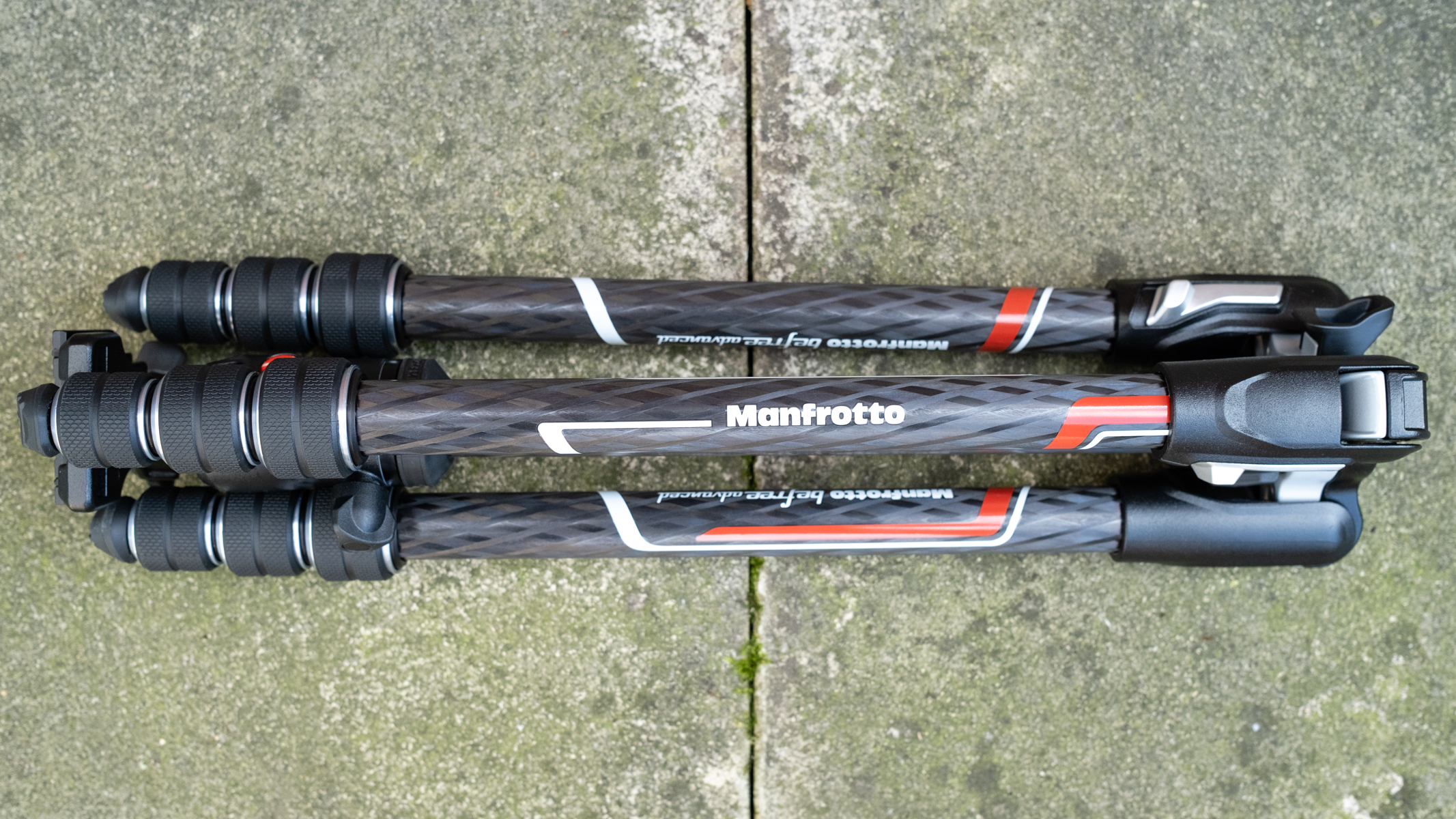
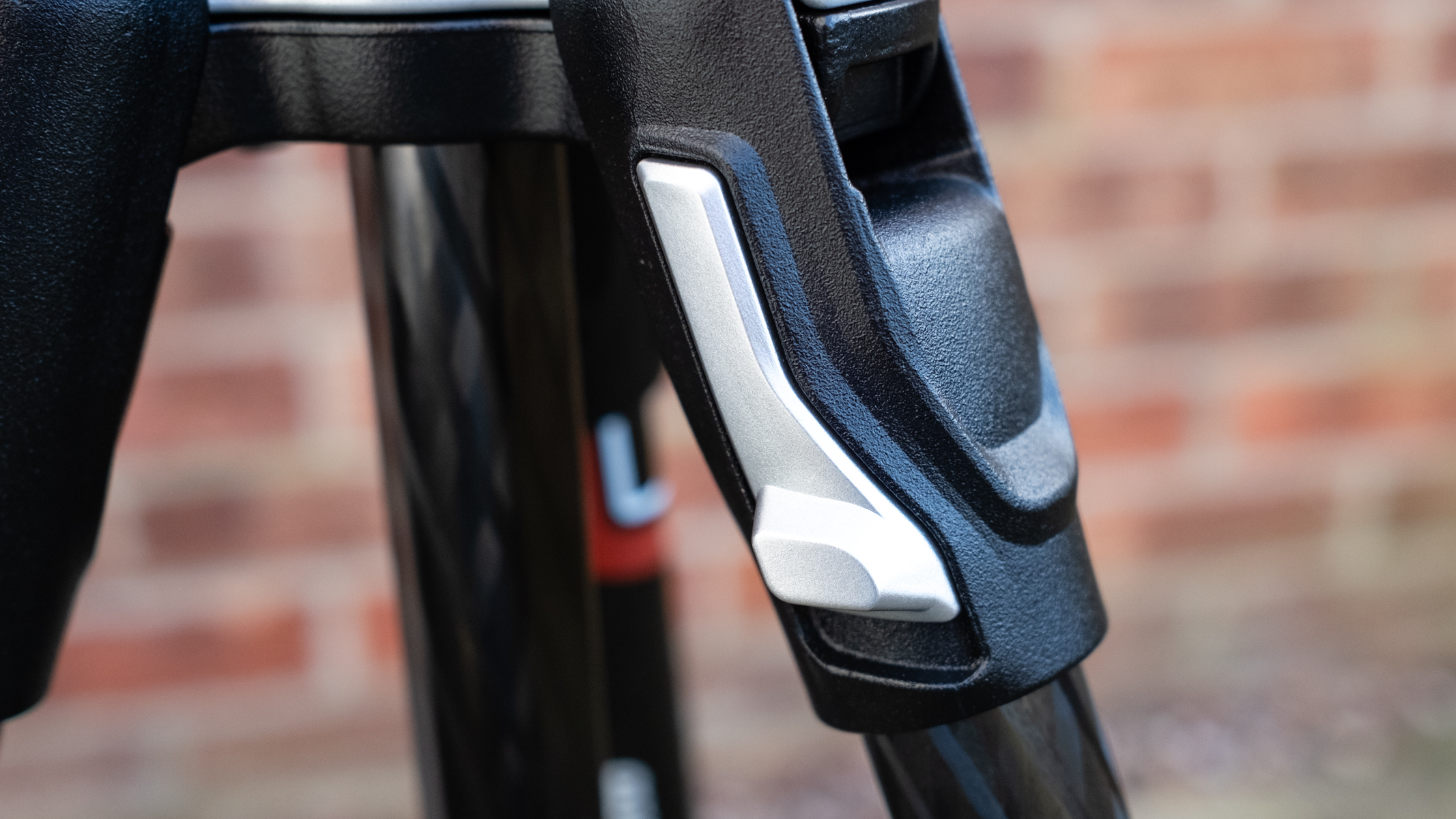
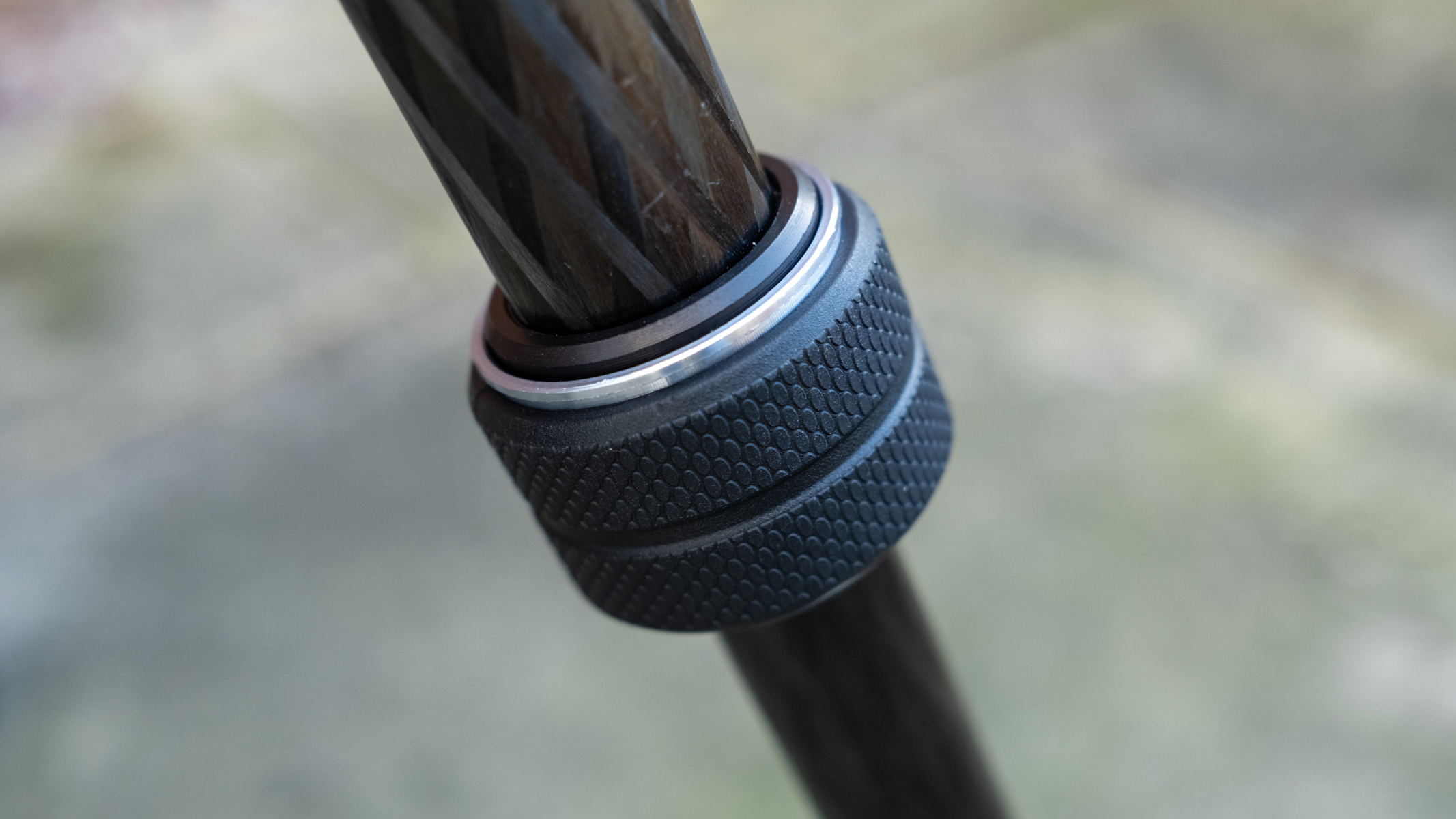
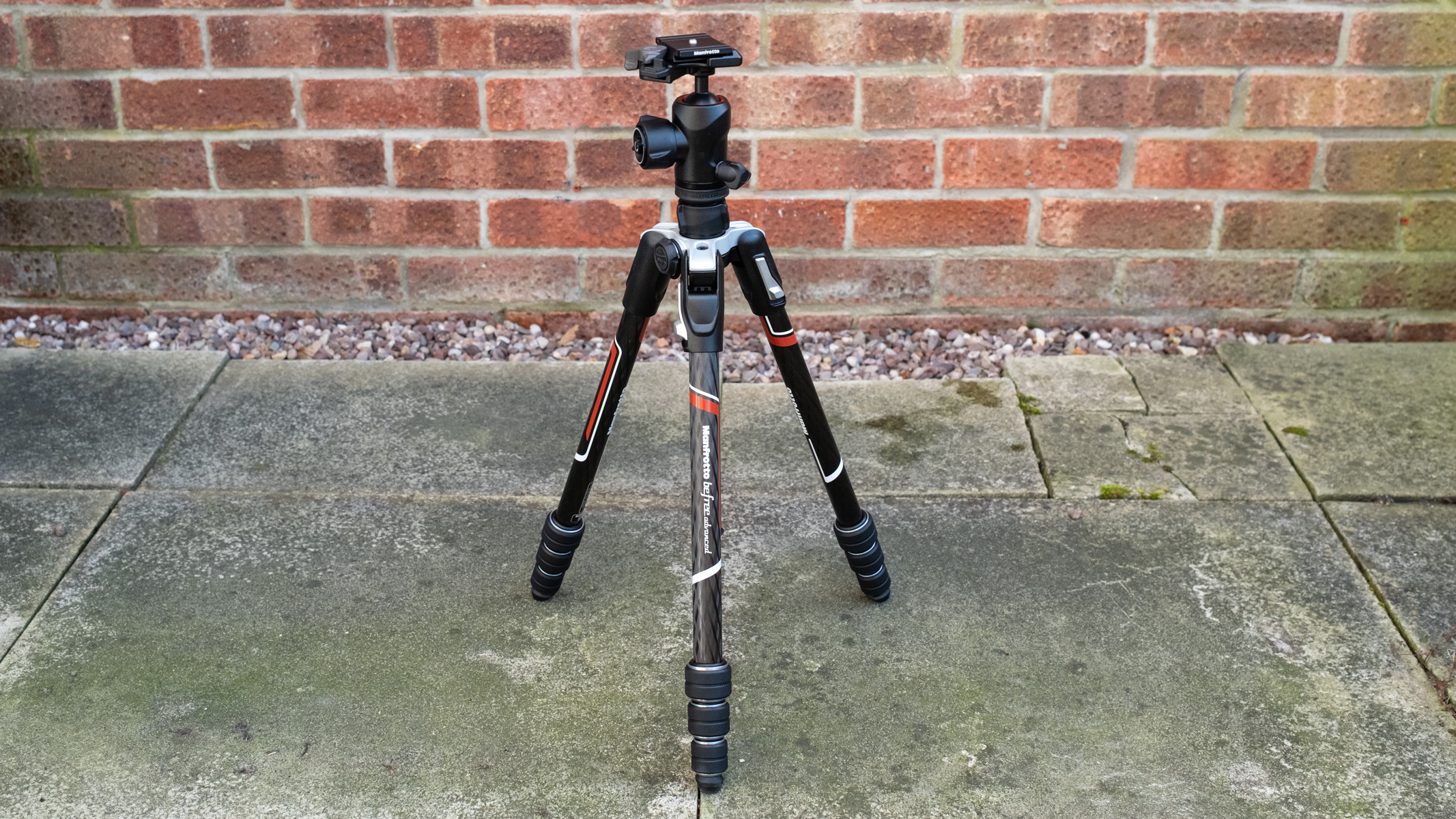
This begs the question, why even bother with a plate like this because it’s full of promise yet fails to deliver? Not to mention, it could be confusing when looking at the specs because if you use an L bracket, the natural assumption would be that it’s compatible with the tripod head. Of course, this won’t be of concern to many photographers who don’t use L brackets, but it’s something you need to know before considering the Befree Advanced.
In use, the Befree Advanced is quick and easy to set up, and with the exception of the of the leg lock buttons that unlock the leg angles and feel a little cheap for the price of the tripod, nothing else can be criticized in terms of quality. There’s also an accessory mount for screwing in accessory arms to hold lighting, tablets and anything else you need to support close to the camera, and if you need to shoot closer to the ground than 16.1in / 41cm minimum, the center column can be inserted into the legs upside down.
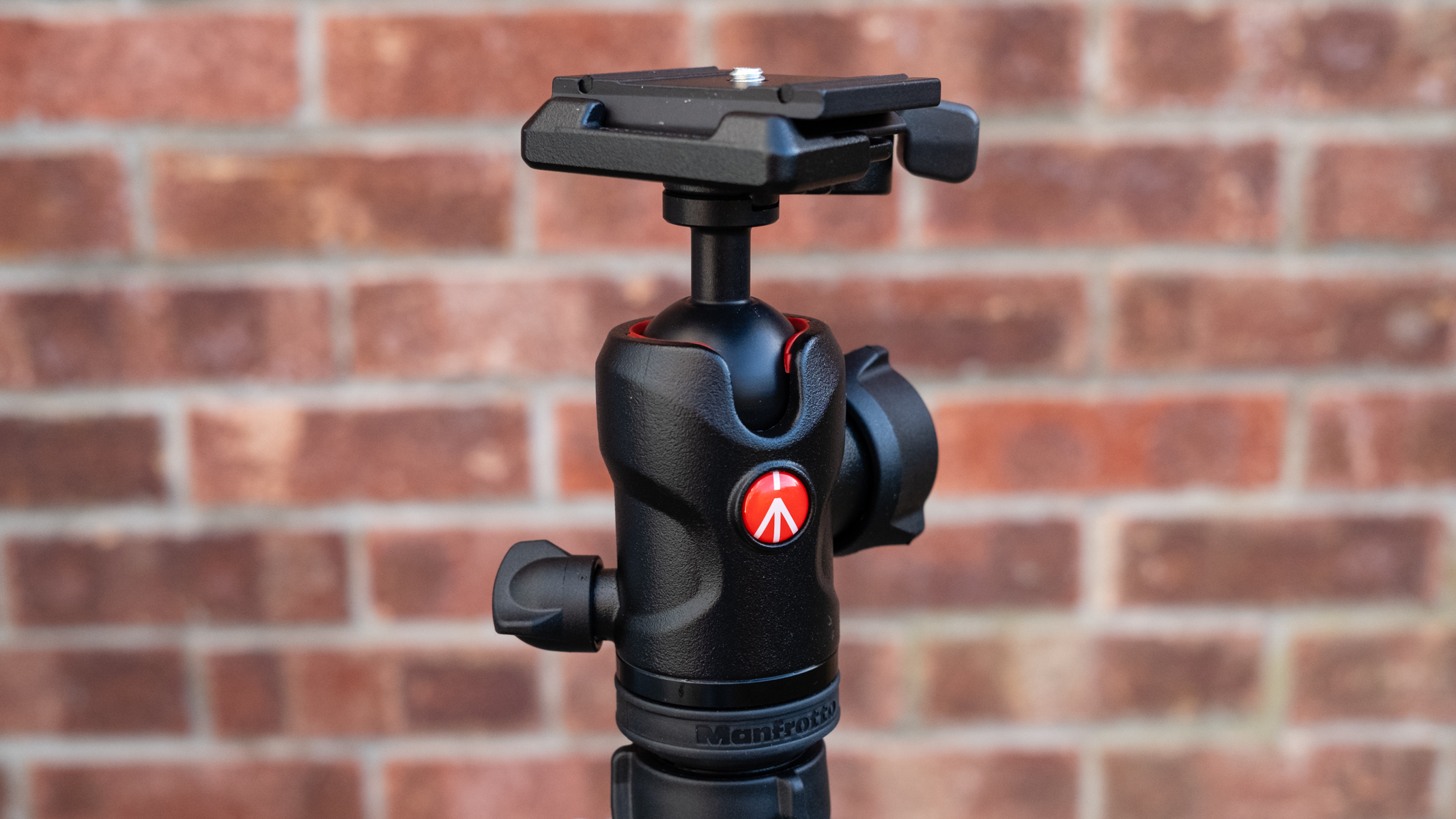
Beyond this, the Befree Advanced is a standard travel tripod with no other bells or whistles; it does what it says on the tin and it does it well; it’s undoubtedly a tripod for those who only require simple features. The accessory mount is nice to have and useful if you need it, while the average maximum height of 59in / 150cm is ideal for travel, landscape and city shooting despite not being the greatest maximum height available.
The Befree Advanced is an attractive travel tripod despite its overall simplicity and the Arca Swiss tripod plate quirk it suffers from. It’s certainly not a perfect package, but where it excels is in its compact size and light weight. Plus, in some cases, equally lightweight options are shorter and not quite as sturdy. In a nutshell, if you need a decent lightweight travel tripod, this remains an option worth considering despite one or two shortcomings.
Should I buy the Manfrotto Befree Advanced Carbon Fiber Travel Tripod?

Buy it if...
You need a lightweight travel tripod
At 2.75lbs / 1.25kg the Befree Advanced is one of the lighter travel tripods available but it’s also impressively stable thanks to the rigid carbon fiber legs.
You only need basic features
If your main concern is a lightweight travel tripod that can simply hold a camera in place reliably, the Befree Advanced does this well.
You need a compact tripod
With a folded length of 16.1in / 41cm the Befree Advanced is at the shorter end of the scale making it a great option for air travel and situations where space is limited.
Don't buy it if...
You need more features
With no built-in monopod leg and a modest maximum height, there are more feature-packed if slightly heavier alternatives available.
You’re on a budget
At $319 / £279 / AU$555 the Befree Advanced is expensive considering how basic its features are, and there are less expensive models available such as the Manfrotto MII Aluminum.
You use an L bracket
L brackets are popular with landscape photographers, and if you use one the Befree Advanced ball head doesn’t accommodate them despite being Arca Swiss compatible.
How I tested the Manfrotto Befree Advanced Carbon Fiber Travel Tripod
The Manfrotto Befree Advanced Carbon Fiber Travel Tripod was tested over a period of time using several different camera and lens combinations to test how the tripod stood up to standard use in travel-oriented scenarios. Cameras used included a premium compact, an APS-C mirrorless camera and a full-frame mirrorless camera. The tripod was also carried around with other photographic kit in my f-stop backpack to evaluate performance over longer shoots such as landscapes.
With nearly 30 years of photographic experience and 15 years working as a photography journalist, I’ve been covering photographic accessories such as tripods for many years. As a professional photographer I frequently use a range of accessories to enhance my photography and bring my working experience of using these to reviews where I can consider how effective photographic accessories are from both a professional and enthusiast point of view.
First reviewed February 2024
James Abbott is a professional photographer and freelance photography journalist. He contributes articles about photography, cameras and drones to a wide range of magazines and websites where he applies a wealth of experience to testing the latest photographic tech. James is also the author of ‘The Digital Darkroom: The Definitive Guide to Photo Editing’.
